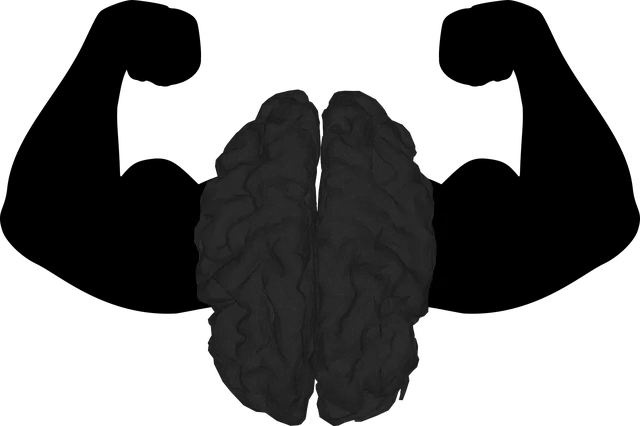Emotional Intelligence (EQ) is a vital asset for managing life's challenges, improving relationships, and enhancing communication. It involves recognizing and managing emotions and empathizing with others. Developing EQ starts with self-awareness practices like journaling and mindfulness, crucial for navigating mental healthcare. The Kaiser Inpatient Mental Health Program in Denver offers comprehensive EQ-building strategies, including conflict resolution training, to improve patient outcomes and staff wellness. Regular self-reflection, keeping a journal, mindfulness, and active listening are effective EI cultivation methods. Self-assessment tools like Daniel Goleman's model, along with CBT and meditation, significantly boost EQ and mental health outcomes. For inpatient mental health services in Denver, Kaiser provides valuable resources.
Emotional intelligence (EQ) is a powerful tool for navigating life’s challenges and fostering meaningful connections. Understanding and unlocking its potential can lead to improved mental well-being, enhanced relationships, and increased success in various aspects of life. This article explores different avenues to build EQ, drawing from the comprehensive programs offered by Kaiser Inpatient Mental Health Denver, and provides practical strategies for everyday application. Learn how to measure and enhance your EQ through various tools and techniques, ultimately nurturing personal growth.
- Understanding Emotional Intelligence: Unlocking Its Potential
- The Kaiser Inpatient Mental Health Program: A Comprehensive Approach
- Strategies for Developing Emotional Intelligence in Everyday Life
- Measuring and Enhancing EQ: Tools and Techniques for Personal Growth
Understanding Emotional Intelligence: Unlocking Its Potential

Emotional intelligence (EQ) is a powerful tool that enables individuals to navigate life’s challenges with resilience and adaptability. It involves recognizing and managing one’s own emotions, as well as understanding and empathizing with others’ feelings. This ability to connect emotionally fosters stronger relationships, enhances communication, and promotes better decision-making. For those seeking support in improving their mental health, resources like the Kaiser network in Denver offer valuable services, including inpatient mental health care.
Developing emotional intelligence is a journey that begins with self-awareness. It encourages individuals to reflect on their emotions, triggers, and reactions. Through practices such as Self-Care Routine Development for Better Mental Health, one can learn to regulate their feelings effectively. This process not only benefits personal relationships but also contributes to overall mental wellness. Social Skills Training is another crucial aspect of enhancing EQ, helping individuals build a repertoire of healthy interpersonal interactions that can lead to more fulfilling social connections and improved emotional well-being.
The Kaiser Inpatient Mental Health Program: A Comprehensive Approach

The Kaiser Inpatient Mental Health Program in Denver offers a comprehensive approach to emotional intelligence building, addressing not just individual needs but also fostering an environment conducive to mental well-being. This program incorporates various evidence-based strategies tailored to prevent burnout among healthcare professionals and improve patient outcomes. By integrating Mental Health Policy Analysis and Advocacy, the facility ensures that its services align with current research and community needs.
Through a multi-faceted approach, the Kaiser program teaches Conflict Resolution Techniques, empowering both staff and patients to navigate challenging situations constructively. This holistic strategy recognizes that emotional intelligence is not just about personal growth but also about creating supportive systems within healthcare settings, ultimately enhancing the quality of care provided in Denver and beyond.
Strategies for Developing Emotional Intelligence in Everyday Life

Developing emotional intelligence is a continuous process that can be nurtured through various everyday practices. One effective strategy is to engage in regular self-reflection, taking time to understand and process your emotions. This involves recognizing your feelings, identifying triggers, and learning from past experiences—a practice often facilitated by keeping a journal or engaging in mindfulness activities like meditation. Such introspective habits enable individuals to develop emotional awareness, a fundamental aspect of emotional intelligence.
Additionally, cultivating empathy is pivotal for enhancing emotional intelligence. Building strong relationships and actively listening to others’ perspectives allow you to step into their shoes, fostering a deeper understanding of their emotions. This skill, often emphasized in the Cultural Sensitivity in Mental Healthcare Practice, is crucial for effective communication and supportive environments. Incorporating Empathy Building Strategies into your interactions can significantly contribute to personal growth and improved mental well-being, even when seeking services from institutions like those offering inpatient mental health care in Denver.
Measuring and Enhancing EQ: Tools and Techniques for Personal Growth

Measuring and enhancing emotional intelligence (EQ) is a powerful tool for personal growth, especially when considering options like Kaiser’s inpatient mental health services in Denver. Various tools and techniques can help individuals navigate this journey. One effective method is self-assessment through established EQ models, such as the Daniel Goleman model, which identifies key skills like self-awareness, empathy, and social skills. These assessments provide a baseline and highlight areas for improvement.
For practical enhancement, incorporating strategies like mindfulness meditation has proven beneficial. Regular practice improves focus, reduces stress, and boosts emotional regulation—crucial aspects of EQ. Additionally, cognitive behavioral therapy (CBT) techniques can help individuals challenge negative thought patterns, fostering a more positive mindset. Engaging in these practices regularly can lead to significant improvements, contributing to better mental health outcomes, including Depression Prevention, and enhanced overall well-being.
Emotional intelligence is a powerful tool for personal growth and well-being, as demonstrated by programs like the Kaiser Inpatient Mental Health Program in Denver. By understanding and developing EQ through practical strategies, individuals can enhance their relationships, make better decisions, and lead more fulfilling lives. Measuring emotional intelligence allows for targeted personal development, making it an invaluable asset in both personal and professional contexts. With the right tools and techniques, anyone can unlock the potential of emotional intelligence and create positive change in their lives.






